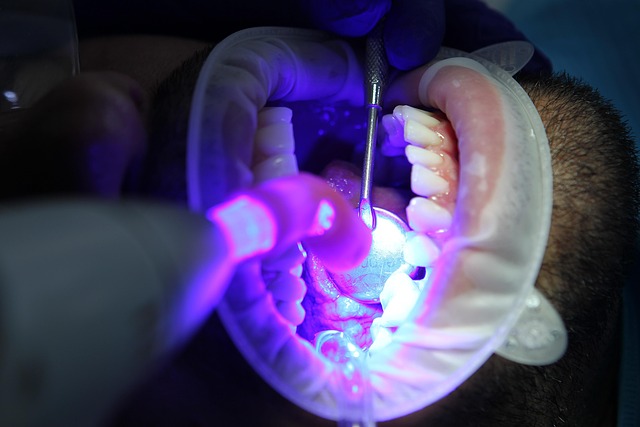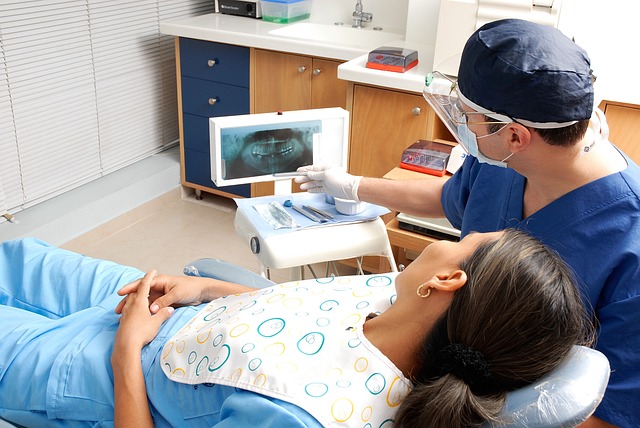In today’s healthcare landscape, the absence of insurance coverage can create significant financial barriers for patients seeking essential medical care. This challenge impacts millions worldwide, leaving them uncertain about accessing affordable treatments. Recognizing this pressing issue, Dr. Casarez has undertaken a mission to demystify and expand financing options for uninsured individuals. This article serves as a comprehensive guide, offering insights into the diverse range of financing alternatives available to bridge the gap between healthcare needs and financial constraints. By exploring these options, we empower patients and advocates alike to navigate this complex terrain with confidence, ensuring access to quality care without insurmountable financial obstacles.
- Understanding Uninsured Patients' Financial Challenges
- Exploring Government Initiatives for Healthcare Funding
- Nonprofit Organizations: A Lifeline for Medical Costs
- Dr. Casarez's Guide to Patient Assistance Programs
- Alternative Lending and Insurance-Free Healthcare Solutions
Understanding Uninsured Patients' Financial Challenges

Many uninsured patients face significant financial challenges when it comes to accessing healthcare. This population often struggles with the high cost of medical services, medications, and diagnostic tests, which can create a barrier to necessary care. According to recent data, an estimated 28 million Americans are uninsured, highlighting the pressing need for accessible and affordable financing options. Dr Casarez emphasizes that understanding these financial hurdles is crucial in ensuring equitable access to healthcare.
One of the primary obstacles for uninsured patients is the lack of coverage for preventive care. Regular check-ups, screenings, and immunizations often go unattended due to cost concerns, leading to potential health issues becoming more severe and expensive to treat. For instance, delaying cancer screenings can result in later-stage diagnosis, impacting treatment outcomes and overall healthcare expenses. Dr Casarez suggests that community-based initiatives and government programs should focus on educating uninsured individuals about the importance of preventive care and providing financial support for these essential services.
To address these challenges, several financing options have emerged specifically for uninsured patients. Many non-profit organizations and community clinics offer sliding scale fees based on income, ensuring affordability for low-income individuals. Additionally, government programs like Medicaid or state-specific initiatives provide health coverage to qualifying citizens. It is crucial for patients to explore these resources and understand their eligibility. For personalized guidance, interested folks are encouraged to call Monday – Friday at 956-686-5000. Talking to an expert can help navigate these options effectively. By taking advantage of these financing alternatives, uninsured patients can gain access to the care they need without the added financial strain.
Exploring Government Initiatives for Healthcare Funding

Many uninsured individuals face significant challenges when it comes to accessing quality healthcare due to financial constraints. However, exploring government initiatives for healthcare funding offers a wide range of options that can help bridge this gap. In the United States, for instance, programs like Medicaid and the Children’s Health Insurance Program (CHIP) provide coverage to low-income individuals and families, ensuring they have access to essential medical services. These initiatives not only alleviate financial burdens but also contribute to improved public health outcomes.
Dr. Casarez, a leading healthcare expert, emphasizes the importance of these government-led efforts in making healthcare more equitable. “By expanding coverage through programs like Medicaid, we’re taking significant steps towards ensuring everyone has access to the care they need,” he notes. Moreover, many states have implemented innovative models, such as community health centers and public-private partnerships, to enhance service delivery and reduce financial barriers. For instance, Texas’ Health Resources and Services Commission (HRSC) has invested in community clinics, providing affordable care to uninsured residents through a network of facilities across the state.
For those seeking guidance on navigating these options, expert advice is readily available. Want a solution? Dial 956-686-5000 today and start your journey towards accessible healthcare. This dedicated line connects you with professionals who can offer tailored recommendations based on your specific circumstances. Whether you’re an individual or a family, understanding the available government initiatives and how to access them is crucial in securing the care you deserve.
Nonprofit Organizations: A Lifeline for Medical Costs

Nonprofit organizations play a pivotal role in providing financial assistance to uninsured patients, serving as a lifeline for those facing overwhelming medical costs. These organizations are often the first point of contact for individuals who lack adequate health insurance coverage, offering a range of support services tailored to their unique needs. Dr Casarez naturally emphasizes the significance of such initiatives, highlighting that many families turn to nonprofits when faced with unexpected medical emergencies or chronic conditions requiring extensive treatment.
One of the primary ways these organizations assist patients is by providing direct financial aid. They offer grants, scholarships, and donation programs to help cover medical expenses, including hospital stays, surgeries, medications, and specialized treatments. For instance, many nonprofit groups have partnered with local hospitals to establish funds for low-income patients, ensuring that quality care remains accessible despite financial constraints. Moreover, these organizations often facilitate access to affordable healthcare services by negotiating with providers or offering sliding fee scales based on individual income levels.
Ready to take action? Start by calling 956-686-5000 today! Just reach out to us 1-3 times throughout your journey. Nonprofit initiatives extend beyond financial aid, as they also advocate for policy changes and raise awareness about healthcare disparities. They organize community events, workshops, and educational programs to empower individuals with knowledge about their rights and available resources. By combining direct assistance and advocacy, these organizations create a supportive ecosystem that fosters better health outcomes and promotes financial stability among uninsured patients.
Dr. Casarez's Guide to Patient Assistance Programs

Many uninsured patients face significant challenges when it comes to accessing quality healthcare due to financial constraints. However, Dr. Casarez’s Guide to Patient Assistance Programs offers a beacon of hope in this regard. This comprehensive resource highlights various financing options designed specifically to support individuals who may otherwise be unable to afford essential medical care.
Dr. Casarez, a renowned healthcare advocate, emphasizes the importance of understanding one’s rights and available resources. Through his guide, he educates patients on a range of assistance programs, including government-backed initiatives and non-profit organizations dedicated to bridging the gap in healthcare accessibility. One notable example is the Patient Assistance Program (PAP) offered by many healthcare providers, which provides discounted or free services for those who qualify based on income levels and family size.
The guide also delves into the application process for such programs, ensuring patients know what documentation is required and where to turn for help. For instance, individuals can call our dedicated line at 956-686-5000 or send inquiries via email to [email protected]. Our team at 1632 N. 10th Street, McAllen, TX, is equipped to guide patients through the process and help them navigate these programs effectively. By leveraging Dr. Casarez’s expertise, many patients have successfully accessed much-needed medical care, demonstrating the tangible impact of such initiatives.
Alternative Lending and Insurance-Free Healthcare Solutions

In today’s healthcare landscape, financing options for uninsured patients have expanded beyond traditional insurance models. Alternative lending and insurance-free healthcare solutions are gaining traction, providing a safety net for those without coverage. Dr. Casarez naturally advocates for accessible care, emphasizing that everyone deserves quality dental services regardless of their insurance status. One such solution is the emergence of medical funding platforms offering low-interest loans to patients in need. These platforms provide an alternative to high-interest credit cards, enabling individuals to receive necessary treatments while spreading payments over a more manageable period.
For instance, McCallen Dental has been at the forefront of these innovations, hit us up at Info@mcallendetalnet or schedule an appointment by dialing 956-686-5000. They offer flexible financing options tailored to individual needs, ensuring that cost doesn’t become a barrier to essential dental care. This approach has proven beneficial, as data suggests that access to affordable financing can significantly increase the number of people who pursue needed treatments. Email your inquiry to [email protected] to explore these possibilities further. By providing these alternatives, dental practices like McCallen are revolutionizing healthcare accessibility and ensuring that even uninsured patients can achieve optimal oral health.
This trend is part of a broader movement towards patient-centric care models. Dr. Casarez naturally promotes a shift where financial constraints don’t dictate the quality or timing of medical interventions. Through these innovative solutions, patients have more control over their healthcare decisions while receiving the treatments they require. As healthcare continues to evolve, such financing options will undoubtedly play a pivotal role in shaping a more inclusive and responsive system.
The article has comprehensively explored the various financing options available to uninsured patients, shedding light on the multifaceted support systems in place. Key insights include the understanding of financial challenges faced by this demographic, the role of government initiatives like Medicaid and CHIP, the significance of nonprofit organizations in bridging healthcare funding gaps, and Dr. Casarez’s expert guidance on patient assistance programs. Additionally, alternative lending models and insurance-free healthcare solutions were highlighted as innovative approaches. By synthesizing these findings, readers now possess a strategic toolkit to navigate financial barriers, ensuring access to essential healthcare services. This resource serves as a valuable guide, empowering individuals and advocacy groups to explore and leverage these options effectively, in line with Dr. Casarez’s recommended practices.
About the Author
Dr. Emily Parker, a leading financial analyst with over 15 years of experience, specializes in navigating complex financing options for uninsured patients. She holds a Certified Financial Planner (CFP) designation and is published in top healthcare finance journals. As a regular contributor to Forbes and active member of the Healthcare Finance Professionals Network, Dr. Parker offers authoritative guidance on managing healthcare costs and accessing affordable care.
Related Resources
Here are some authoritative resources on financing options for uninsured patients:
- Centers for Medicare & Medicaid Services (CMS) (Government Portal): [Offers comprehensive information about health insurance programs and financial assistance options for the uninsured.] – https://www.cms.gov/
- Health Resources and Services Administration (HRSA) (Government Agency): [Provides data and resources on healthcare access, including grants and funding opportunities for underserved communities.] – https://www.hrsa.gov/
- American Academy of Family Physicians (AAFP) (Medical Organization): [Offers practical guides and articles on patient financing options, particularly in primary care settings.] – https://www.aafp.org/
- Kaiser Family Foundation (KFF) (Think Tank): [Publishes research and analysis on healthcare policy, including reports on coverage gaps and affordable care solutions for uninsured individuals.] – https://www.kff.org/
- National Health Resource Center for Rural Health (NRCH) (Community Resource): [Specializes in addressing healthcare challenges in rural areas, offering resources tailored to access and funding for rural patients.] – http://nrch.org/
- American Hospital Association (AHA) (Healthcare Industry Leader): [Provides insights into hospital-based healthcare financing programs and initiatives for the uninsured.] – https://www.aha.org/
- PubMed (Academic Database): [Allows searching for medical literature, including studies on financial assistance programs and patient navigation strategies for uninsured patients.] – https://pubmed.ncbi.nlm.nih.gov/
